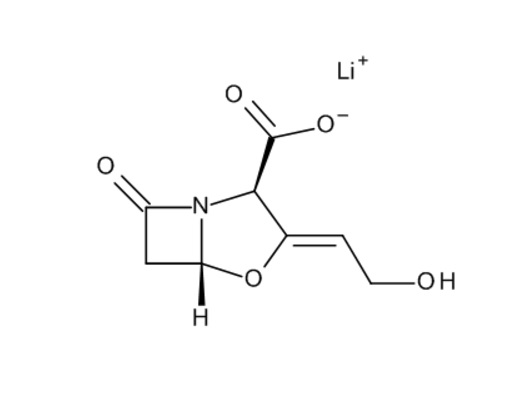Michelia alba, ext.
- CAS NO.:92457-18-6
- Molecular Weight: 0
- EINECS: 296-299-2
- Update Date: 2023-05-25 18:01:16
What is Michelia alba, ext.?
Chemical properties
The Michelia genus consists of approximately 45 species of evergreen and deciduous shrubs and trees distributed in southeast Asia. M. alba has small, white, very fragrant flowers with leaves similar to avocado. This fast-growing shade tree is popular in China, where it is used as a containerized plant or shade tree. It blooms during warm weather and is a member of the magnolia family. It is related to the banana shrub, M. fuscata. The flowers have been used to add a pleasing aromatic note to tea
Chemical properties
The oil is prepared by water distillation, steam distillation or organic solvent extraction. The oil yield is generally 0.78 to 1.12% (v/w dry material). Only water distillation and steam distillation products are free from the reddish tinge of other extracted essential oil
Essential oil composition
The flower oil contains linalool 72.8% [(R) 75%; (S) 25%]; α-terpineol 6.04%; β-phenylethyl alcohol 2.58%; β-pinene 2.3%; methyl 2-methylbutyrate 1.46%; geraniol 1.239%; 1,8-cineole 1.03%. The leaf oil contains linalool 80.1% [(R) 95.3%; (S) 4.7%]; β-caryophyllene 3.0%; β-elemene 1.7%; caryophyllene oxide 1.68%; and nerolidol 1.19%.
Properties of Michelia alba, ext.
| FEMA | 3950 | MICHELIA ALBA OIL |
| Odor | sweet, oily, grassy, tea, hay, clary, sage, rose, leaf odor |
Safety information for Michelia alba, ext.
Computed Descriptors for Michelia alba, ext.
New Products
4-AMINO-TETRAHYDRO-PYRAN-4-CARBOXYLIC ACID HCL 4-(Dimethylamino)tetrahydro-2H-pyran-4-carbonitrile 4-Aminotetrahydropyran-4-carbonitrile Hydrochloride (R)-3-Aminobutanenitrile Hydrochloride 3-((Dimethylamino)methyl)-5-methylhexan-2-one oxalate 1,4-Dioxa-8-azaspiro[4.5]decane 5-Bromo-2-nitropyridine Nimesulide BP Aceclofenac IP/BP/EP Diclofenac Sodium IP/BP/EP/USP Mefenamic Acid IP/BP/EP/USP Ornidazole IP Diclofenac Potassium THOMAIND PAPER PH 2.0 TO 4.5 1 BOX BUFFER CAPSULE PH 9.2 - 10 CAP SODIUM CHLORIDE 0.1N CVS ALLOXAN MONOHYDRATE 98% PLATINUM 0.5% ON 3 MM ALUMINA PELLETS (TYPE 73) LITHIUM AAS SOLUTION 2-Bromo-1-(bromomethyl)-3-chloro-5-nitrobenzene 2-Bromo-3-nitroaniline N-(3-Hydroxypropyl)-N-methylacetamide 3-Bromo-6-chloropyridazine 4-ethyl-3-nitrobenzoic acidRelated products of tetrahydrofuran








You may like
-
 1-Methyl-6-oxo-1,6-dihydropyridazine-3-carbonitrile 98%View Details
1-Methyl-6-oxo-1,6-dihydropyridazine-3-carbonitrile 98%View Details
99903-60-3 -
 88491-46-7 98%View Details
88491-46-7 98%View Details
88491-46-7 -
 1823368-42-8 98%View Details
1823368-42-8 98%View Details
1823368-42-8 -
 2-(3-(tert-butyl)phenoxy)-2-methylpropanoic acid 1307449-08-6 98%View Details
2-(3-(tert-butyl)phenoxy)-2-methylpropanoic acid 1307449-08-6 98%View Details
1307449-08-6 -
 Ethyl 3-(furan-2-yl)-3-hydroxypropanoate 25408-95-1 98%View Details
Ethyl 3-(furan-2-yl)-3-hydroxypropanoate 25408-95-1 98%View Details
25408-95-1 -
 2-Chloro-5-fluoro-1-methoxy-3-methylbenzene 98%View Details
2-Chloro-5-fluoro-1-methoxy-3-methylbenzene 98%View Details
1805639-70-6 -
 1784294-80-9 98%View Details
1784294-80-9 98%View Details
1784294-80-9 -
 Lithium ClavulanateView Details
Lithium ClavulanateView Details
61177-44-4